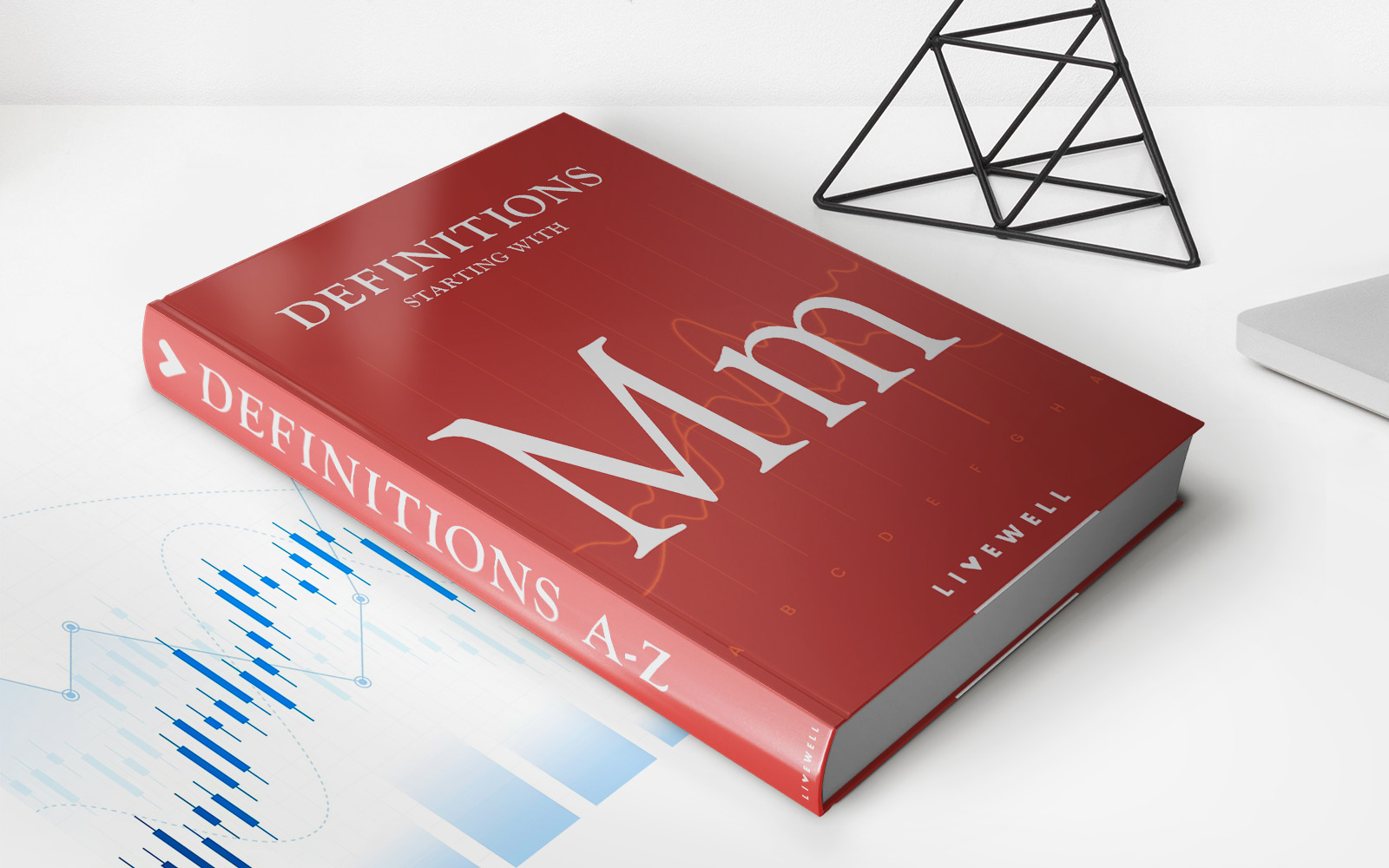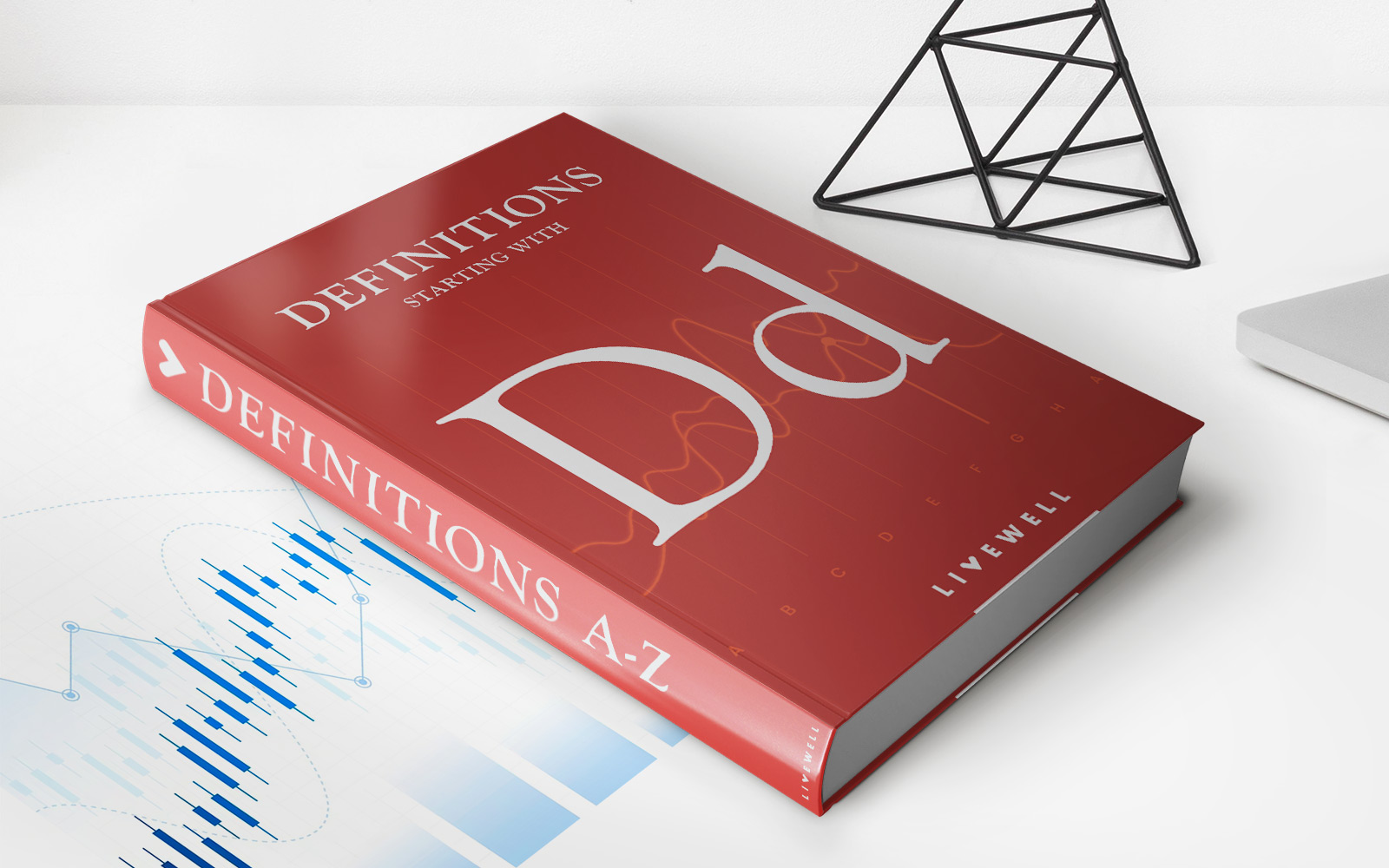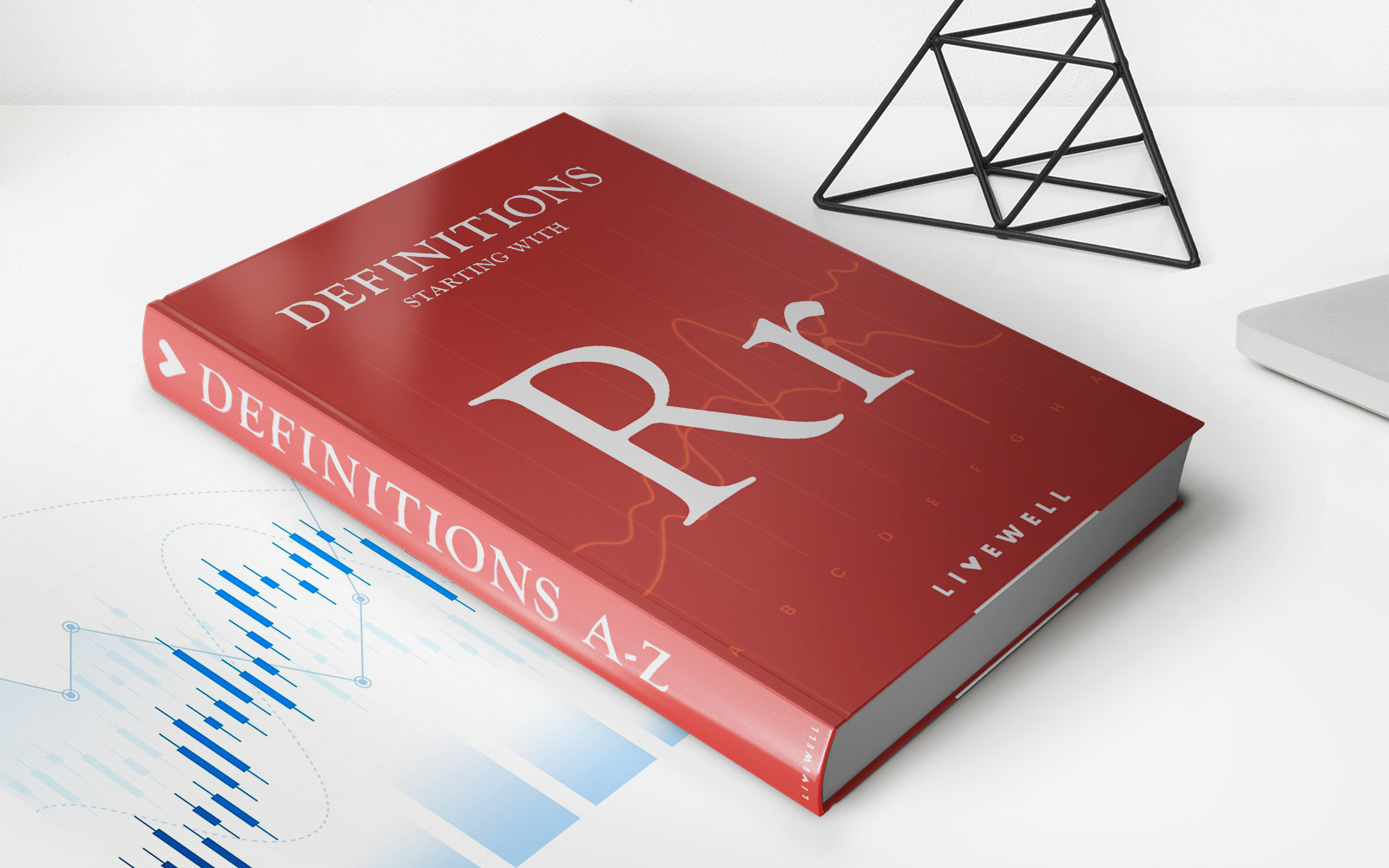Home>Finance>What Is The Difference Between Pension And Annuity


Finance
What Is The Difference Between Pension And Annuity
Published: November 27, 2023
Explore the key distinction between pension plans and annuities in the world of finance. Discover how each offers unique benefits and considerations for your financial future.
(Many of the links in this article redirect to a specific reviewed product. Your purchase of these products through affiliate links helps to generate commission for LiveWell, at no extra cost. Learn more)
Table of Contents
Introduction
When it comes to retirement planning, understanding the difference between a pension and an annuity is crucial. Both pension and annuity are financial tools that can provide a steady stream of income during retirement. However, they have distinct features and serve different purposes. In this article, we will delve into the definitions, purposes, benefits, and key differences between a pension and an annuity.
A pension is a retirement plan provided by an employer, typically as part of a benefits package. It is designed to provide a regular income to employees after they cease working. On the other hand, an annuity is a financial product that individuals can purchase from insurance companies or financial institutions to secure a predictable income stream for their retirement years.
The main purpose of a pension is to reward employees for their years of service and provide them with financial stability during retirement. It is usually funded by the employer, who contributes a percentage of the employee’s salary throughout their working years. The accumulated funds are then invested to generate growth and, upon retirement, are used to provide regular pension payments.
An annuity, on the other hand, is primarily used as a personal investment tool for retirement. Individuals can purchase an annuity by making a lump sum payment or by making regular contributions. The funds are then invested, and at a predetermined date, the annuitant starts receiving regular payments, typically monthly or annually.
Both pensions and annuities offer numerous benefits. Pensions provide a guaranteed income for life, ensuring a stable financial foundation during retirement. They may also offer additional benefits such as cost-of-living adjustments (COLAs) to protect against inflation. Annuities, on the other hand, provide flexibility in terms of contribution amounts and investment options. They can be customized to suit an individual’s specific financial goals and risk tolerance.
Definition of Pension
A pension is a type of retirement plan offered by an employer to provide income to employees during their retirement years. It serves as a financial safety net, ensuring that individuals can maintain a certain standard of living after they stop working.
In a pension plan, the employer sets aside a portion of the employee’s salary or wages, typically based on a percentage, into a pension fund. This fund is invested in various financial instruments such as stocks, bonds, and mutual funds to generate growth over time. The accumulated funds are then used to provide regular pension payments to the employee upon retirement.
Pensions can be defined benefit plans or defined contribution plans. In a defined benefit plan, the employer guarantees a specific amount of income to the employee during retirement, based on factors such as salary, years of service, and age at retirement. The employer bears the investment risk and is responsible for funding the pension plan. This type of pension provides a predictable and stable income stream, often adjusted for inflation.
A defined contribution plan, on the other hand, does not guarantee a specific income amount at retirement. Instead, the employer contributes a certain percentage of the employee’s salary, and both the employer and employee can make additional contributions to the pension account. The investment growth of the contributions determines the final value of the pension fund, which is then used to provide retirement income. The employee assumes the investment risk and has more control over the investment choices.
It is important to note that pensions are typically offered by government entities, large corporations, and certain industries such as education and healthcare. Smaller companies may not offer pensions but may provide alternative retirement plans such as 401(k) or IRA accounts.
Pensions often come with eligibility requirements, such as a minimum number of years of service or a specific age at which employees can start receiving pension payments. The calculation of pension benefits may vary based on factors such as years of service, final average salary, and the specific pension plan provisions.
In summary, a pension is a retirement plan provided by an employer that ensures regular income for employees during their retirement years. It can be a defined benefit or defined contribution plan, and it offers financial security and stability for retirees.
Definition of Annuity
An annuity is a financial product that individuals can purchase from insurance companies or financial institutions to provide a regular income stream during their retirement years. It is essentially a contract between the individual (annuitant) and the issuer of the annuity.
When an individual purchases an annuity, they make either a lump sum payment or a series of contributions over time. The funds are then invested, typically in a variety of assets such as stocks, bonds, and mutual funds, with the goal of generating growth and income over the long term. The annuity issuer bears the investment risk and is responsible for managing the underlying investments.
There are different types of annuities, each with its own characteristics and payout options. Here are some common types:
- Immediate Annuity: This type of annuity starts providing regular income payments shortly after the annuity is purchased. It is suitable for individuals who want to begin receiving income immediately upon retirement or shortly thereafter.
- Deferred Annuity: With a deferred annuity, income payments are deferred to a future date chosen by the annuitant. During the accumulation phase, the funds grow tax-deferred, allowing for potential compounding of investment gains. This type of annuity is commonly used as a long-term retirement planning tool.
- Fixed Annuity: In a fixed annuity, the annuitant receives a guaranteed fixed income for a specific period or for life. The income payments are predetermined and do not vary based on the performance of the underlying investments. This provides stability and predictability for retirees.
- Variable Annuity: Unlike a fixed annuity, a variable annuity offers the potential for higher returns but also carries more risk. The income payments fluctuate based on the performance of the underlying investments, which are typically invested in mutual funds. Variable annuities provide individuals with the opportunity to participate in the growth of the financial markets.
Annuities offer several benefits to individuals planning for retirement. They provide a guaranteed income stream, allowing retirees to budget and plan their expenses more effectively. Annuities also offer tax advantages, as the growth of the investment is tax-deferred until the income payments start. Additionally, annuities can be structured to provide income for a specific period, or even for the rest of an individual’s life, providing financial security and peace of mind.
It is important to carefully consider the terms, fees, and features of an annuity before purchasing one. Consulting with a financial advisor who specializes in retirement planning can help individuals make informed decisions and choose the annuity that best aligns with their financial goals and risk tolerance.
In summary, an annuity is a financial product that provides a regular income stream during retirement. It can be purchased from insurance companies or financial institutions and offers various types and payout options. Annuities provide retirees with financial security, potential tax advantages, and the opportunity for investment growth.
Purpose of Pension
The purpose of a pension is to provide employees with a reliable and regular income during their retirement years. Pensions serve as a form of financial security, offering a means for individuals to maintain their standard of living once they stop working.
One significant purpose of a pension is to reward employees for their years of service and loyalty to a company or organization. It serves as a tangible acknowledgment of their contributions and dedication. Pensions are often offered as part of a comprehensive benefits package to attract and retain talented employees.
Pensions address the concern of individuals outliving their savings. By providing a guaranteed income stream, pensions help alleviate the risk of running out of money in retirement. This is especially important as life expectancies increase and retirees face longer periods of financial dependency.
Another purpose of a pension is to promote financial stability and independence during retirement. Retirees often face a significant decrease in income once they stop working, which can impact their ability to cover essential expenses and maintain their desired lifestyle. Pensions bridge this income gap by providing a reliable source of funds to meet daily living costs and enjoy retirement activities.
In addition to income stability, pensions can offer other benefits such as cost-of-living adjustments (COLAs). COLAs help protect pension payments against inflation by adjusting them to keep pace with rising living expenses. This ensures that the purchasing power of pension income remains relatively constant over time.
Pensions also play a vital role in improving individuals’ financial well-being after retirement. By providing a steady income, pensions help reduce the reliance on other sources of income, such as personal savings or Social Security benefits. This can alleviate financial stress, allowing retirees to focus on enjoying their retirement years and pursuing their interests.
Furthermore, pensions contribute to overall economic stability. As retirees receive pension payments, they continue to contribute to local economies by spending on goods and services. This can spur economic growth and provide a positive impact on communities.
However, it is important to note that the availability and generosity of pensions can vary depending on the employer and the pension plan in place. Some employers may offer defined benefit plans that guarantee specific income amounts, while others may offer defined contribution plans, which depend on the performance of the investments made.
In summary, the purpose of a pension is to provide employees with a stable income during retirement, reward loyalty, promote financial stability, and protect against the risk of outliving savings. It serves as a crucial component of retirement planning, offering individuals the means to enjoy their later years with financial security and peace of mind.
Purpose of Annuity
The purpose of an annuity is to provide individuals with a reliable and predictable income stream during their retirement years. Annuities serve as a valuable tool in retirement planning, offering a means to secure a steady source of income to meet living expenses and maintain financial stability.
One key purpose of an annuity is to address the risk of outliving savings. With increasing life expectancies and uncertainties regarding future financial markets, individuals may be concerned about exhausting their savings during retirement. Annuities provide a solution by offering guaranteed income payments for a specific period or for life, providing retirees with peace of mind and financial security.
Another purpose of an annuity is to provide a personalized retirement income plan. Annuities can be customized to suit an individual’s specific financial goals, risk tolerance, and desired income stream. By choosing the type of annuity and payout options, individuals can tailor their annuity to meet their unique needs and preferences.
Annuities also offer tax advantages as a retirement savings vehicle. The growth of the annuity investments is tax-deferred until the income payments begin, allowing the annuitant to potentially accumulate more funds over time. This can result in a more tax-efficient retirement income and potentially lower tax liabilities during the accumulation phase.
Furthermore, annuities provide retirees with a predictable income stream, helping to budget and plan for their expenses. The regular income payments can cover essentials such as housing, healthcare, and daily living costs. Annuities can be especially valuable for individuals who do not have access to employer-sponsored pensions or have limited other sources of retirement income.
Annuities also offer the flexibility to choose from a range of payout options. For example, individuals can select whether they want fixed payments that remain the same over time or payments that adjust to account for inflation. Annuities can also be structured to include survivorship options, ensuring that a spouse or beneficiary continues to receive income even after the annuitant’s death.
Additionally, annuities can serve as a means of asset protection and estate planning. In some cases, annuity assets may be protected from creditors and legal claims, providing a measure of financial security. Annuities can also be used to pass on wealth to beneficiaries, as the remaining funds in the annuity can be transferred to a beneficiary after the annuitant’s death.
It is important to note that annuities come with certain fees, surrender charges, and restrictions. Therefore, it is crucial for individuals to carefully review the terms and features of an annuity before making a purchase. Consulting with a financial advisor can help individuals navigate the options and select the annuity that aligns with their retirement goals and financial situation.
In summary, the purpose of an annuity is to provide individuals with a reliable and personalized income stream during retirement. Annuities offer financial security, tax advantages, flexibility in payout options, and the potential for asset protection and estate planning. They serve as a valuable tool in retirement planning, helping individuals ensure a stable financial future and enjoy their retirement years with confidence.
Benefits of Pension
Pensions offer several significant benefits to individuals planning for retirement. Understanding these benefits can help individuals make informed decisions regarding their retirement savings and income strategies. Here are some key advantages of pensions:
- Guaranteed Income: One of the main benefits of a pension is that it provides a guaranteed income for life or a specified period. This means that retirees can rely on a regular stream of income to cover living expenses and maintain a desired standard of living.
- Financial Security: Pensions offer a sense of financial security during retirement. By providing a consistent income, pensions help alleviate the stress and uncertainty associated with managing personal savings or investments. Retirees can have peace of mind knowing that they have a reliable source of income.
- Stable and Predictable Payments: Pensions provide stable and predictable payments, making it easier for retirees to budget and plan for their future expenses. Unlike other retirement income sources that may fluctuate, such as investment returns or Social Security benefits, pensions offer a consistent income stream that retirees can rely on.
- Inflation Protection: Many pension plans include cost-of-living adjustments (COLAs) to protect against inflation. COLAs ensure that pension payments are adjusted periodically to keep pace with rising living expenses. This helps retirees maintain their purchasing power and preserves the value of their pension income over time.
- Employer Contributions: In many cases, employers contribute a portion of employees’ salaries into the pension fund. This means that employees receive additional retirement savings beyond their own contributions. Employer contributions can significantly boost the overall retirement income for individuals.
- Professional Investment Management: Pensions are typically managed by professional investment managers who have expertise in maximizing investment returns. This ensures that pension funds are invested prudently and have the potential for growth over time. Professional management can help retirees achieve optimal portfolio performance and long-term financial goals.
Furthermore, pensions offer beneficiaries and dependents certain advantages, such as survivor benefits. In the event of the retiree’s death, pensions often provide continued payments or benefits to surviving spouses or qualified beneficiaries. This provides financial protection and support for loved ones.
It is important to note that the benefits of a pension may vary depending on the specific pension plan, employer contributions, and other factors. Some pension plans may offer additional features, such as healthcare benefits or early retirement options, that enhance the overall value for retirees.
Overall, the benefits of a pension make it an attractive retirement savings and income option for many individuals. It provides a guaranteed income, financial security, stability, and professional investment management. By considering the advantages of a pension, individuals can make informed choices to secure their financial well-being during retirement.
Benefits of Annuity
Annuities offer several key benefits that make them an attractive option for retirement planning and income strategies. Understanding these advantages can help individuals make informed decisions about incorporating annuities into their overall financial plan. Here are some of the benefits of annuities:
- Guaranteed Income: One of the primary benefits of an annuity is the ability to provide a guaranteed income stream during retirement. This means that individuals can rely on regular income payments to cover their living expenses and maintain their desired standard of living.
- Customizable Payout Options: Annuities offer flexibility in choosing the payout options that best suit an individual’s needs. Options may include receiving income for a specific period or for life, with the choice of fixed payments or payments that adjust for inflation. This allows individuals to customize their annuity to align with their financial goals and retirement plans.
- Tax Advantages: Annuities provide individuals with potential tax advantages. The growth of the annuity investments is tax-deferred until income payments are received. This can allow the investments to potentially accumulate more over time, as the growth is not subject to annual taxation. Individuals may also have the option to annuitize the annuity, which can result in favorable tax treatment of the income received.
- Asset Protection: In some cases, annuities can provide asset protection. Depending on the jurisdiction, annuity assets may be protected from creditors and legal claims. This can offer individuals an added layer of financial security, ensuring that their annuity funds remain safeguarded.
- Estate Planning: Annuities can play a role in estate planning by allowing individuals to designate beneficiaries to receive any remaining funds upon their death. This can help transfer wealth to loved ones efficiently, avoiding probate and potential estate taxes.
- Professional Management: Annuities are often managed by professionals who have expertise in investment management. These professionals handle the day-to-day management of the underlying investments, aiming to maximize returns while managing risk. This can provide individuals with peace of mind knowing that their annuity is being managed by professionals.
Furthermore, annuities can provide individuals with a reliable income stream regardless of market fluctuations. This means that retirees can have confidence in their financial stability, even during times of economic uncertainty. Annuities can also serve as a supplement to other sources of retirement income, such as Social Security or personal savings, helping individuals achieve a well-rounded and diversified retirement income plan.
It is important to note that annuities come with certain fees, surrender charges, and restrictions. Individuals should carefully review the terms and features of an annuity before making a purchase. Consulting with a financial advisor who specializes in annuities can help individuals navigate the options and choose the annuity that best aligns with their financial goals and risk tolerance.
In summary, annuities offer several benefits, including a guaranteed income stream, customizable payout options, tax advantages, asset protection, estate planning opportunities, and professional management. By understanding and considering these benefits, individuals can make informed decisions about using annuities as part of their retirement income strategy.
Key Differences Between Pension and Annuity
While both pensions and annuities serve as sources of income during retirement, there are several key differences between these two financial tools. Understanding these differences is crucial for individuals making decisions about their retirement planning and income strategies. Here are the key differences between pensions and annuities:
- Source: Pensions are typically provided by employers as part of a benefits package, while annuities are usually purchased by individuals from insurance companies or financial institutions.
- Payment Structure: Pensions provide a regular income for life or a specified period, typically through monthly payments. Annuities, on the other hand, offer customizable payout options, including receiving income for a specific period or for life, with variations such as fixed payments or inflation-adjusted payments.
- Guarantees: Pensions offer a guaranteed income stream, often based on factors such as salary, years of service, and age at retirement. Annuities also provide guaranteed income payments, but the guarantees may vary depending on the type of annuity and the specific terms agreed upon.
- Investment Control: Pensions are managed by the employer or pension fund managers, who make investment decisions on behalf of the employees. Annuities, however, allow individuals to have more control over the investment choices or to rely on the professional management offered by the annuity provider.
- Contributions: Pensions are typically funded by contributions from the employer, while annuities are funded by the annuitant through a lump sum payment or regular contributions.
- Risk: Pensions come with the risk borne by the employer or pension plan if investments do not perform as expected. Annuities, on the other hand, may carry investment risk for the annuitant, depending on the type of annuity. Variable annuities, for example, expose the annuitant to fluctuations in the performance of the underlying investments.
- Portability: Pensions are tied to the employer, meaning that if an employee leaves the company before retirement, their pension benefits may be affected. Annuities, however, can be more portable, as they are individual contracts that can be maintained regardless of employment changes.
- Flexibility: Pensions generally offer less flexibility in terms of contribution amounts and payout options, as they are determined by the pension plan and the employer. Annuities, on the other hand, provide individuals with the ability to choose customized options that align with their financial goals and retirement plans.
It is important for individuals to carefully consider these differences when deciding between a pension and an annuity. Factors such as employment stability, desire for control over investments, risk tolerance, and flexibility requirements should be taken into account. Consulting with a financial advisor can provide valuable guidance in making the most suitable choice.
In summary, the key differences between pensions and annuities lie in their source, payment structure, guarantees, investment control, contributions, risk, portability, and flexibility. Understanding these distinctions allows individuals to make informed decisions about which option aligns best with their retirement goals and financial circumstances.
Factors to Consider When Choosing Between Pension and Annuity
Choosing between a pension and an annuity is an important decision that requires careful consideration of various factors. By understanding these factors, individuals can make an informed choice regarding their retirement income strategy. Here are some key factors to consider when deciding between a pension and an annuity:
- Employment Stability: If you work for an employer that offers a pension plan and you have long-term job security, a pension may be an attractive option. Pensions provide a guaranteed income stream based on your years of service and salary. However, if you anticipate changing jobs frequently or working for employers that do not offer pensions, an annuity may be a more suitable choice.
- Control over Investments: Some individuals prefer to have control over their investments and investment decisions. Annuities offer more flexibility in investment choices and the level of control. By purchasing an annuity, you can choose to invest in different asset classes and have more input in how your money is managed. On the other hand, pensions are typically managed by pension fund managers or employers, limiting your control over investment decisions.
- Risk Tolerance: Consider your risk tolerance when deciding between a pension and an annuity. Pensions provide a guaranteed income, ensuring a stable financial foundation in retirement. Annuities, particularly variable annuities, expose you to market risks based on the underlying investments. If you are risk-averse and prefer a predictable income, a pension may be more suitable. If you have a higher risk tolerance and are comfortable with the potential for higher returns, an annuity may be a viable option.
- Flexibility: Consider the level of flexibility you require in terms of contribution amounts and payout options. Pensions generally have less flexibility, as employer contributions and payout options are determined by the pension plan. Annuities offer more customization, allowing you to choose the amount and frequency of contributions, as well as the payout options that best align with your financial goals and retirement plans.
- Additional Benefits: Pensions may come with additional benefits beyond the regular income stream, such as healthcare benefits or cost-of-living adjustments (COLAs) that protect against inflation. Evaluate these additional benefits in relation to your needs and goals. Annuities may also come with features such as access to funds in case of emergencies or the ability to pass on assets to beneficiaries.
- Portability and Flexibility: Consider whether portability and flexibility are important to you. Pensions are tied to the employer, so if you change jobs before retirement, your pension benefits may be affected. Annuities, on the other hand, are individual contracts that are more portable and can be maintained regardless of employment changes.
- Financial Situation: Evaluate your overall financial situation, including your other retirement savings and potential sources of income. Assess how a pension or annuity would fit into your retirement income plan and whether it meets your financial goals and needs.
It is crucial to carefully assess these factors and their relevance to your individual circumstances. Consider seeking guidance from a financial advisor who can provide personalized advice and help you make an informed decision based on your specific situation.
In summary, factors such as employment stability, control over investments, risk tolerance, flexibility, additional benefits, portability, and your overall financial situation should be considered when choosing between a pension and an annuity. Weighing these factors will help you determine which option best aligns with your retirement goals and financial needs.
Conclusion
When it comes to planning for retirement, deciding between a pension and an annuity is a crucial step. Both options offer benefits and considerations that individuals must evaluate based on their unique circumstances and financial goals. Pensions provide a guaranteed income for life or a specific period, typically offered by employers as part of a benefits package. Annuities, on the other hand, are financial products that individuals can purchase to secure a reliable income stream during retirement.
While pensions offer stability and security, with contributions made by employers and professional management of investments, annuities provide flexibility in payout options and investment choices. Annuities also offer potential tax advantages and customizable features that allow individuals to tailor their retirement income plan to their specific needs and preferences.
When deciding between a pension and an annuity, it is essential to consider factors such as employment stability, control over investments, risk tolerance, flexibility, additional benefits, portability, and your overall financial situation. Evaluating these factors will help determine which option aligns best with your retirement goals and financial needs.
Ultimately, there is no one-size-fits-all answer for everyone, and the choice between a pension and an annuity will depend on personal circumstances and priorities. Some individuals may benefit more from the security and stability of a pension, while others may prefer the flexibility and control offered by annuities. It is advisable to consult with a financial advisor who understands your financial situation and retirement objectives to guide you in making the most suitable decision.
Remember, retirement planning is a long-term commitment, and it is important to review and adjust your retirement strategy as your circumstances change. Regularly reassess your financial goals, evaluate your retirement savings, and stay informed about new developments in pension and annuity offerings to ensure that your retirement plan remains on track.
In conclusion, both pensions and annuities play valuable roles in retirement planning, offering individuals the opportunity to secure a reliable income stream during their retirement years. By carefully considering the benefits and differences between these options and seeking professional advice, individuals can make informed decisions that best support their financial well-being and help them enjoy a fulfilling and financially secure retirement.














